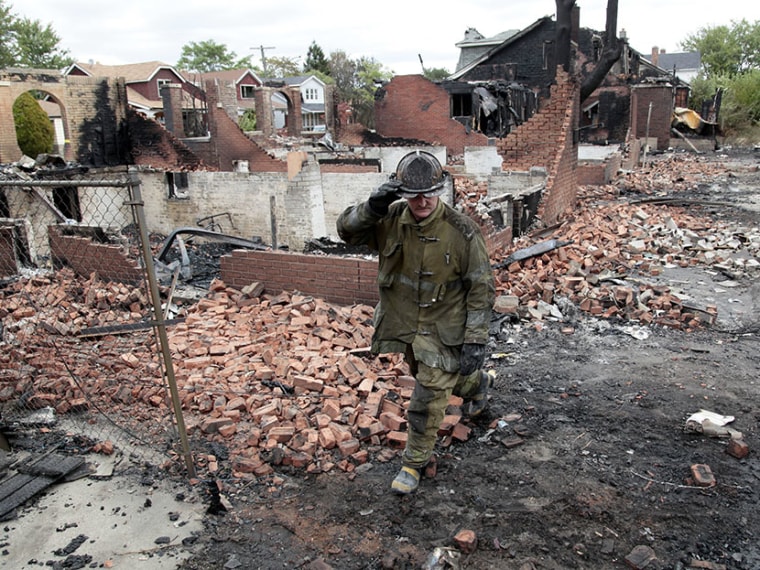Nobody is happy with Detroit's bankruptcy. That's the message that Emergency Manager Kevyn Orr, Mayor David Bing and Michigan Gov. Rick Snyder have repeated over and over in their public appearances over the past few days, following Snyder's authorization of a Chapter 9 bankruptcy filing for the city.
"There is very difficult for all of us," said Bing in a Thursday press conference. "But if it's going to make the citizens better off, then this is a new start for us."
But bankruptcy is likely to be more difficult for some people than others. While bondholders and banks may have to make some concessions during bankruptcy proceedings, it is retired public employees who are likely to suffer the most.
"The group with the most to lose is the employees and retirees," Michigan State University economist Eric Scorsone told msnbc. "Some of the bondholders have insurance. This is part of a bigger portfolio they have." Pensioners have no such safety net.
Orr and Snyder have made clear that public employee pensions will take a hit. Appearing on the Friday edition of msnbc's Andrea Mitchell Reports, Orr said that pensions would need to face "some form of adjustment."
"Some of the pension funds may be better funded than others, and so you may have a disparity in terms of the magnitude of the haircut," he said. "But we have to address these issues."
Orr estimates that Detroit now owes about $18 billion in long-term debt, including $3.5 billion in pension obligations, though the pension funds themselves dispute that number. Retiree health care accounts for another estimated $5.7 billion in debt, though the largest category is Water and Sewage Department debt, which totals at $5.9 billion. That latter category of debt is categorized as secured debt, to be repayed out of water and sewer revenues. Orr has continued payments on secured debt, even as he has halted them for unsecured debt. Secured debt payments will continue even in bankruptcy.
Michael Mulholland, vice president for the public employee union AFSCME Local 207, said that it was not "morally justifiable" for the city to treat pensions as if they are unsecured debt, thereby cutting off payments to retirees.
"We didn't gamble on the marketplace. We didn't buy bonds," he said. "I've worked for 29 and a half years, and all I expect to get is all I was promised I would get, which is a modest, acceptable pension."
AFSCME Local 207 and other labor unions have vowed to fight Orr and Snyder all through bankruptcy. Next Thursday, Local 207 will lead a rally in front of Detroit's City-County Building against Emergency Management and potential cuts to city retirement funds. Detroit pension funds and individual retirees have also filed suit, saying that the Michigan state constitution protects public employee retirement funds against bankruptcy proceedings. On Friday, an Ingham County Judge declared the bankruptcy filing unconstitutional, though the Michigan attorney general is challenging her ruling.
"This is probably going to go to the Michigan Supreme Court, quite frankly, to see what's happening here," said Scorsone.
